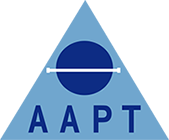News
National Apprenticeship week - mortuary technician focus
For National Apprenticeship Week, we spoke to Phizz Lake at University Hospitals Southampton NHS Trust on her experience of being a mortuary technician apprentice.
Phizz, many thanks for taking time to talk to AAPT about your apprenticeship. Can you tell us a little about yourself and how you secured an apprenticeship?
You’re very welcome, Christian, thanks for allowing me this opportunity to discuss this new route into anatomical pathology technology.
I qualified as a diagnostic radiographer and got to a stage where the role became stagnant for me and I needed a new challenge, that wouldn’t become controlled by technology. I applied for the trainee technician post, and it took three separate interviews to secure my post at Southampton and I recommend a good internet reception and working headphones to anyone applying for a post!
The role applied for was a trainee position and a month before the course started, the apprenticeship route became an option. To be frank, it wasn’t something I expected to happen, but the decision was made to take the apprenticeship route, and that’s how I came to be an apprentice APT.
In many ways, an apprentice is a trainee APT in all but name. Do you in any way feel ‘different’ to the students who have are enrolled on the more traditional path to being qualified?
Not overly, though we have been granted additional discussions with the training provider at North Tees and been provided a liaison at Eastleigh Durham university to guide us through the extra requirements that the apprenticeship demands.
As the first group to go down the apprenticeship route I do feel that there has been a steep learning curve for both us apprentices and the apprenticeship trainers. Group sessions have enlightened the college to what we do at the level we do it at. There were moments where we had to discuss the differences between APTs and Funeral Directors for the key skills element of the apprenticeship and that led to some interesting discussions.
Has membership of the AAPT been of benefit as an apprentice and is the membership offering a sound one that is provided to student members of the Association?
The AAPT have been welcoming and assistive to both traditional trainees and mortuary technician apprentices.
The Annual Educational Event and CPD opportunities have been provided to all regardless of the route chosen.
Graduate apprentices are in a good position to then become professionally registered as Registered Science Technicians given the AAPT holds a full licence with the Science Council. Would you value this professional award?
Absolutely, having come from a registered profession, such as Radiography, I feel that professional registration provides a sense of identity that will promote our work to the wider NHS, and the departments we interact with.
What would be your take home message to those looking to seek employment as a mortuary technician apprentice?
I would advise to anyone, looking into entering this line of work, to ask themselves why they want to do it. It can be a tough day, and to those that are just curious as to know what happens in the PM room, ask yourself why?
For me it was knowing that I can learn to give the best, last, moment of care to my patients. For them, for their relatives, and for myself.
Last question! What is the best thing about being an apprentice in the mortuary industry?
Honestly, I feel the apprenticeship route is a work in progress.
There have been teething problems on the way, with the college getting up to date on the role of an APT.
As the first group to go through this route, however, and with our reflections and advice are taken on board, the apprenticeship option will be a valuable gateway to a much underappreciated profession.
